
Tuesday February 12, 2008
Opinion
Tuesday, February 05, 2008
By Howard P. Willens
Special to the Saipan Tribune
For more than a decade Commonwealth residents have debated the pros and cons of federalization of the CNMI immigration and labor laws. Today this debate is focused on the provisions of H.R. 3079, currently before the U.S. Senate for final approval. Although the debate on the merits of the bill undoubtedly will continue, it is desirable to strive for a common understanding of what the bill means.
The Issue
Recent media reports originating from an unnamed source at the Senate Committee on Energy and Natural Resources, plus numerous letters in support of H.R. 3079, have proposed an interpretation of the legislation's transition program that I find to be clearly wrong. The question at issue may be simply stated: Does the transition period under H.R 3079 involve one or two special programs for guest workers in the CNMI?
In Support of the Two Guest Worker Programs Theory
The anonymous Committee staffer (quoted in the Marianas Variety of Jan. 30, 2008) and the letter writers contend that there are two separate guest worker programs provided by H.R. 3079 under which employers may hire nonimmigrant foreign workers during the transition period.
First, they state that “current guest workers would be eligible for the new CNMI-only temporary guest worker program.” They go on to say that this will give these workers “the chance to remain in the CNMI as long as that program is operating and it will certainly last at least six years beyond the date” of the bill's enactment and “probably longer, given the CNMI's very large dependence on guest workers.” (This description is misleading. It fails to acknowledge that during this transition period federal officials are required to reduce annually the number of workers covered by the permit system in order to achieve eventually the goal of zero. It offers small comfort to the 19,000 guest workers in the CNMI to know that a few of them will have the “chance” to be the last to be repatriated.)
Second, they state that “guest workers would be eligible for the non-immigrant worker program under existing federal law on H visas, and allows the CNMI to participate in it without numerical caps.” Conceding that the goal of the legislation is to eventually reduce the number of the guest workers under the CNMI-only temporary guest worker to zero, the proponents of the two-programs interpretation state that “guest workers would continue [to] be able to enter the CNMI indefinitely under the existing federal non-immigrant worker program or [sic] H visas.”
In Support of Only a Single Guest Worker Program
I find that there is a single transition program defined by H.R. 3079, which imposes a permit system on all employers seeking to use nonimmigrant foreign workers, whether that worker is presently in the CNMI or comes in on an H visa. Furthermore, the law requires reductions in the number of permits on an annual basis to zero by the end of 2013, subject to the granting of an extension. After the transition period ends, nonimmigrant workers could enter the CNMI only with an H visa and the Commonwealth would be subject to the national caps (unlike Guam). Because it would have to compete with all other U.S. jurisdictions for H visas under the national caps (after the transition program ends), the Commonwealth would get few, if any, of these visas.
I find that the two-program theory is unsupportable for these reasons.
First, there is nothing in either the language of H.R. 3079 or its legislative history that refers to two separate guest worker programs during the transition period. All preceding versions of this bill have defined only a single such program to help bridge the gap between the CNMI's current situation and the full application of the federal immigration laws. This is true of the original versions of H.R. 3079 and S. 1634 as introduced in Congress in 2007, as well as S.1052 passes by the Senate in 2000 and S. 507, approved by the Senate Committee on Energy and Natural Resources in 2001. Each of these bills defined a single special transition program lasting ten years (or possibly longer) during which the number of nonimmigrant guest workers in the Commonwealth would be reduced to zero.
Second, the proponents of two programs infer the existence of the second guest worker program from the exemption from the numerical caps for H visas that H.R. 3079 provides to the CNMI during the transition program. Such an inference is not supportable and the subsection authorizing the exemption does not permit federal officials implementing H.R. 3079 to admit nonimmigrant workers under an H visa who are not covered by the permit system established by the CNMI-only transition program.
1) The language of the exemption provision, subsection 6(b) of H.R. 3079, imposes no duties whatsoever on federal officials implementing the legislation. It provides only that “An alien, if otherwise qualified, may seek admission to Guam or to the Commonwealth during the transition program as a nonimmigrant worker” under the H visa programs “without counting against the numerical limitations” contained in the Immigration and Nationality Act.
2) The exemption from the national caps was necessary to permit the federal officials to issue one or more H visas to meet particular employment requests in the Commonwealth without the need to take such visas away from other jurisdictions in the United States. Such exemptions were contained in all previous bills addressing the CNMI situation, with no reference whatsoever in any of these bills to a “second” guest worker program.
3) In earlier versions of the law, the subsection dealing with the exemption from the caps on H visas was contained within the description of the CNMI-only guest worker program. It was almost certainly moved out from this description once it was decided to extend the exemption to Guam as well as the CNMI. It would have been inappropriate, and perhaps misleading, to have this provision relating to Guam contained in the subsection dealing with the CNMI-only guest worker program.
4) The subsections dealing with the CNMI-only guest worker program (with its permit system and objective of annual reductions) indicate that their provisions apply to workers entering the CNMI on H visas, as well as those workers currently in the CNMI who would be entitled to a nonimmigrant classification.
--Subsection 6(d) begins with this statement: “An alien who is seeking to enter the Commonwealth as a nonimmigrant worker may be admitted to perform work during the transition period subject to the following requirements [of the permit system]”
--Subsection 6(d)(2) states: “No alien shall be granted nonimmigrant classification or a visa under this subsection unless the permit requirements established under this paragraph have been met.”
-- Subsection 6(d)(3) provides that the Secretaries of Homeland Security and State shall establish the conditions for admitting such nonimmigrant workers during the transition period and states: “An alien admitted to the Commonwealth on the basis of such a visa shall be permitted to engage in employment only as authorized pursuant to the transition program.”
Third, if the drafters of H.R. 3079 as approved by the House of Representatives had intended to exempt the workers coming in under the H visa program from the CNMI-only transition program, they knew how to do so. In the version of H.R. 3079 that was the subject of hearings in August 2007, there was a provision for the use of employment-based immigrant visas, if necessary, to supplement the available CNMI workforce. Before such visas could be used, the Secretary of Labor under Subsection 6(c)(3) of the bill had to conclude “that exceptional circumstances exist with respect to the inability of employers in the Commonwealth to obtain sufficient work-authorized labor, in addition to the Commonwealth-only transitional workers authorized under section 103(d)..” (emphasis supplied) As the United States Supreme Court has observed, “where Congress includes particular language in one section of a statute but omits it in another., it is generally presumed that Congress acts intentionally and purposely in the disparate inclusion or exclusion.” Keene Corp. v. United States, 508 U.S. 200, 208 (1993) (quoting Russello v. United States, 464 U.S.16, 23 (1983)).
Fourth, the contention that the bill provides for two, very different, guest worker programs during the transition period simply makes no sense. In the first place, why would any guest worker choose to participate in the so-called temporary program, with the chance of having the available permits being reduced to zero, if such an easy and non-threatening alternative were available under this hypothetical H visa program. Secondly, the argument assumes that the very same federal officials required to apply the harsh provisions of the CNMI-only guest worker program would conclude that Congress intended them to admit all H visa applicants seeking to work in the CNMI without regard to the permit system imposed by the CNMI-only program. This proposition cannot withstand rational analysis. .
The fact is, H.R. 3079 mandates the reduction of guest workers in the Commonwealth to zero within five years, or perhaps longer if an extension is granted. There are no exceptions, and there is no alternative for guest workers or CNMI employers, who will have to compete for the permits remaining after the required annual reductions. Those who drafted the bill intended this result. There is absolutely no legislative history indicating anything to the contrary. The Congressional drafters of this bill (and the Senate bill) and their collaborators at the Department of the Interior declined to provide to the Commonwealth any draft of the proposed bill that they ultimately sent to the House of Representatives for passage. If we had been given this opportunity, we could easily have pointed out these and other deficiencies in the proposed legislation and the inevitable and serious adverse effects on the Commonwealth and its guest workers that will result from its enactment.
(Howard P. Willens is the Special Legal Counsel to Gov. Benigno R. Fitial.)
.
.
TAOTAO TANO HAD SPOKEN
- A direct impediment to the human right to self-determination
- 12808 st - Taotao Tano rebuts Pete A. in interview with KSPN 2 News
- TAOTAO TANO CNMI sents letters to the community
- 011608 st - SEND THEM HOME
- 011608 mv - Guest worker faces deportation
- 011608 mv - TAOTAO TANO SLAMS FEDERAL LABOR OMBUDSMAN
- 121407 mv - Trampled by foreigners
- 121407 mv - The despair of the indigenous people
- 121407 st - Familiarity breeds contempt
- 121407 st - 'Be selective on who to bring in'
- 121407 st - This land belongs to the indigenous
- 121407 st - To the people of Precinct 1
- 121407 mv - Think again
UPDATES by links
- 020808 mv - Fitial ready to testify in DC vs federalization, wage hike
- 020108 mv - US Senate panel OKs federalization bill
- HOUSE APPROVED 3079
- 121407 mv -Fitial says feds applying ‘socialism’ to NMI
- 120707 mv - Bingaman answers Fitial
- 120307 mv - US House may vote on NMI federalization
- 110607 mv - Cohen: Fitial administration ‘misinterpreted’ nonimmigrant provision
- 110207 mv -Guest workers brace for final version of federalization bill
- 110207 mv -Gov’t to recalculate numbers of migrants before year ends
Tuesday, February 12, 2008
The plain meaning of H.R. 3079
at
7:02:00 AM
Posted by
TAOTAO TANO CNMI
![]()
Subscribe to:
Post Comments (Atom)
OUR FALLEN HEROES
SAME THING WILL HAPPEN HERE - JUST CHANGE THE NUMBERS
JUST CHANGE THE NUMBERS TO CNMI NUMBERS AND
THE COHEN PLAN WILL HARM THE CNMI IN THE SAME WAY
CURRENT IMMIGRATION POLICIES WILL DAMAGE THE USA.

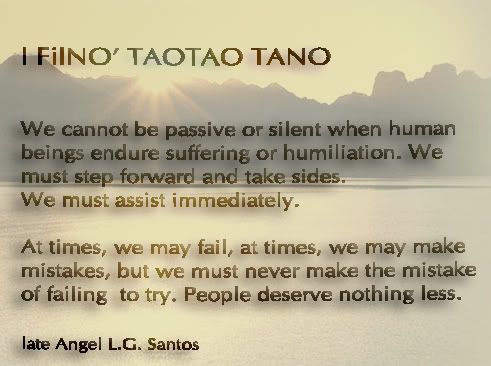


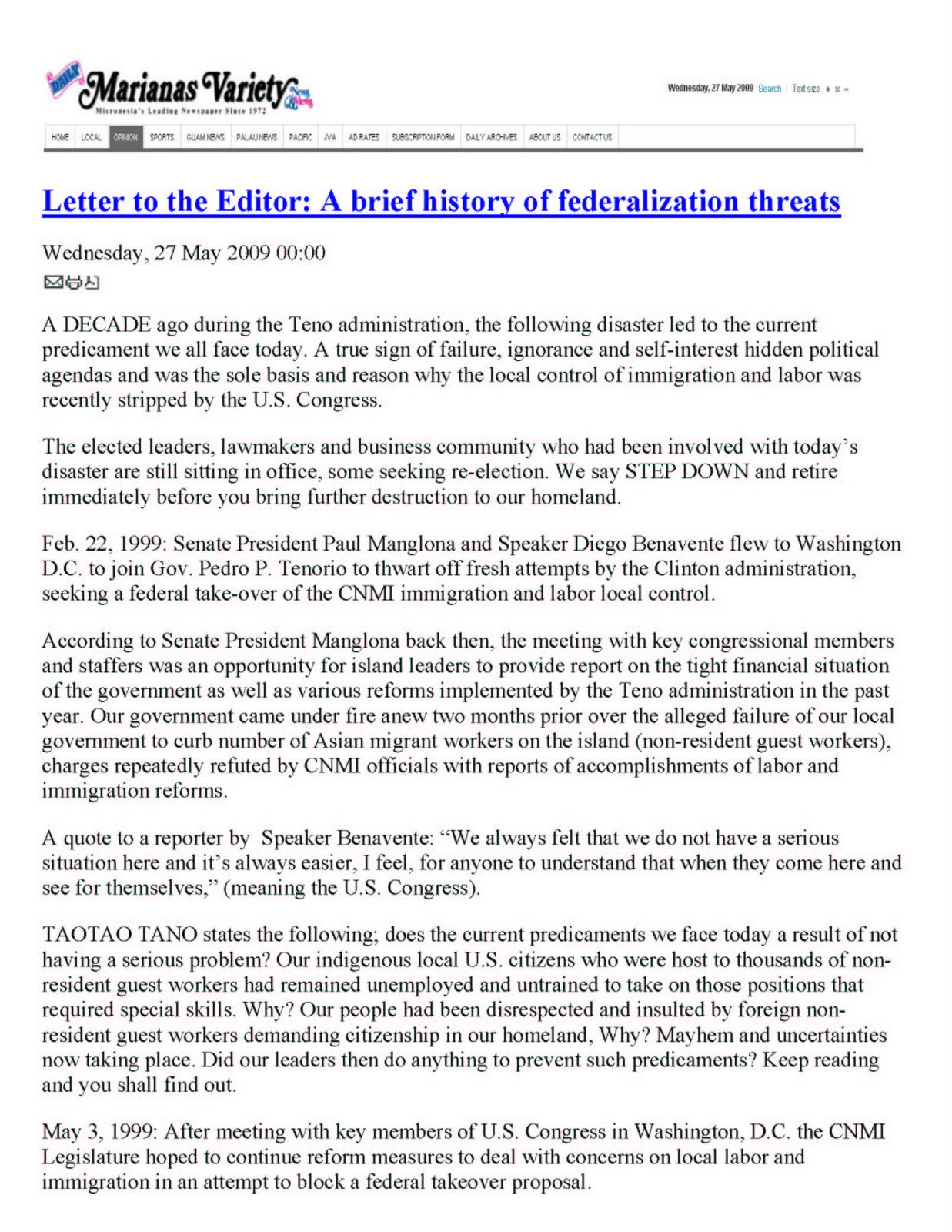

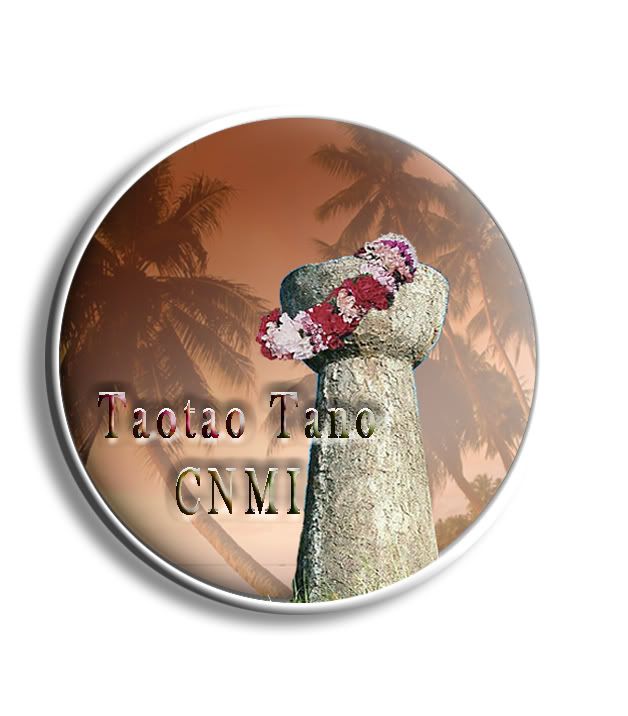


















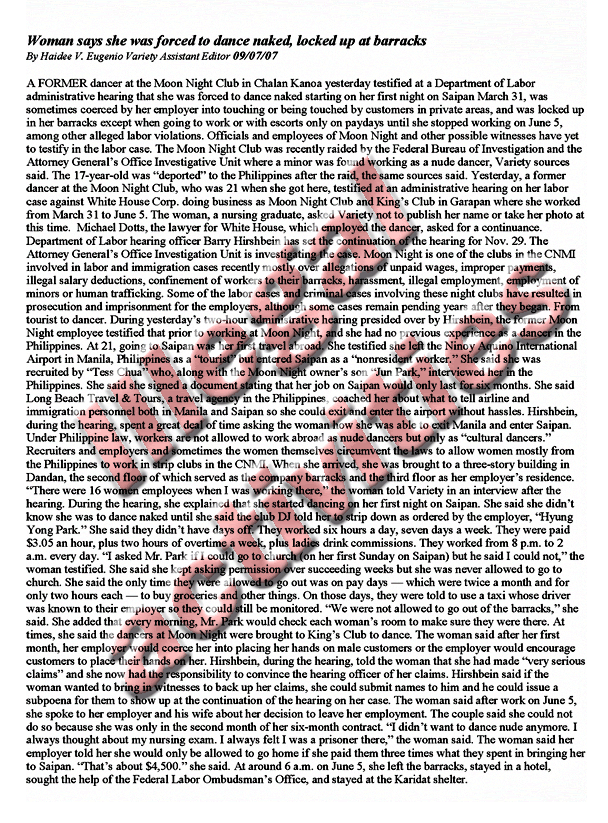
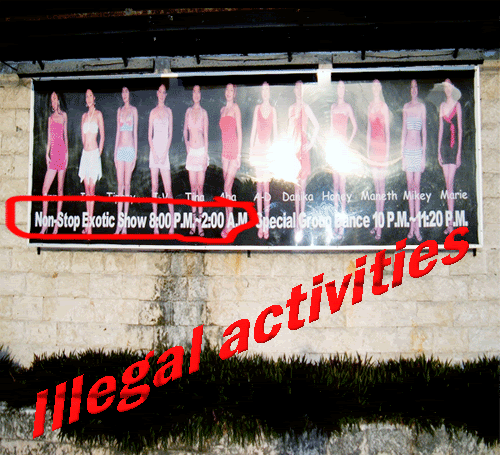


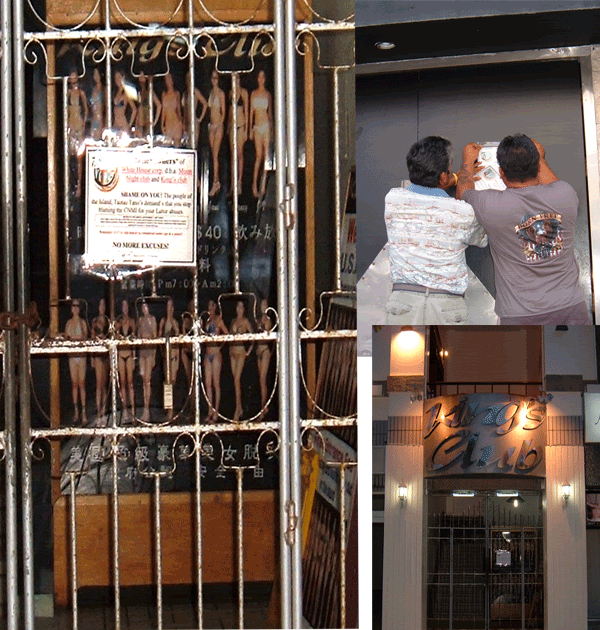
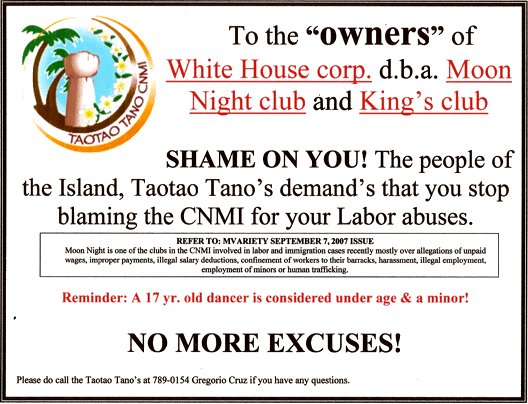
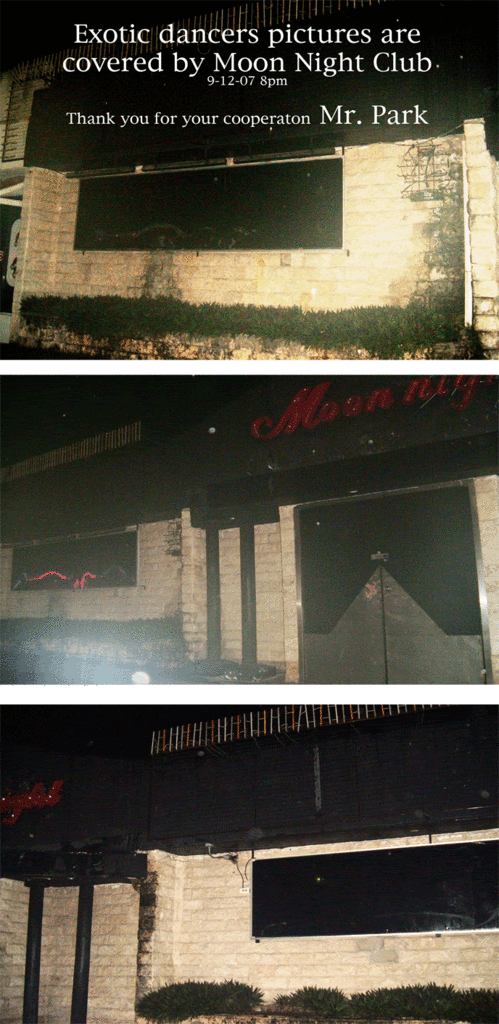
No comments:
Post a Comment